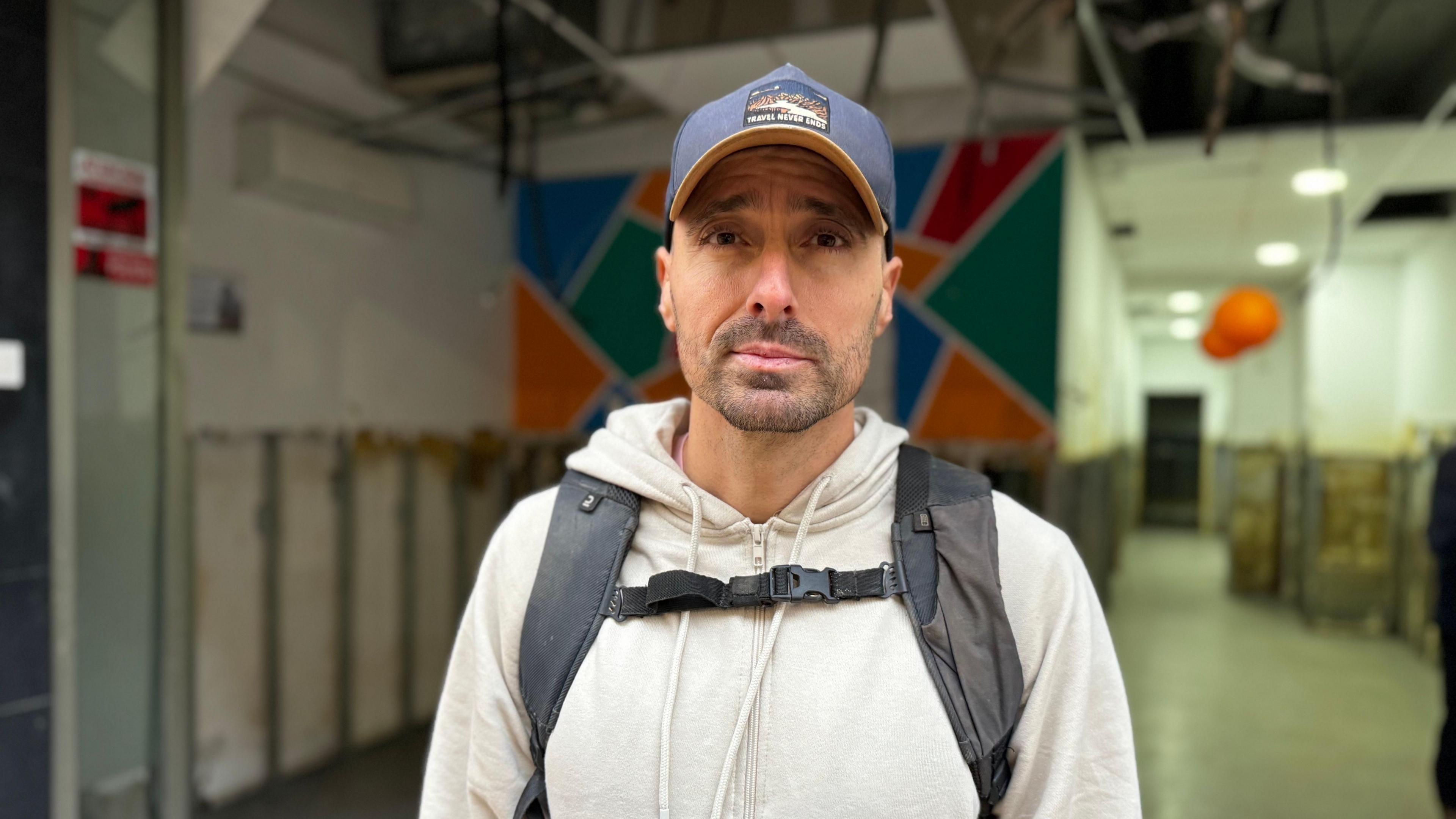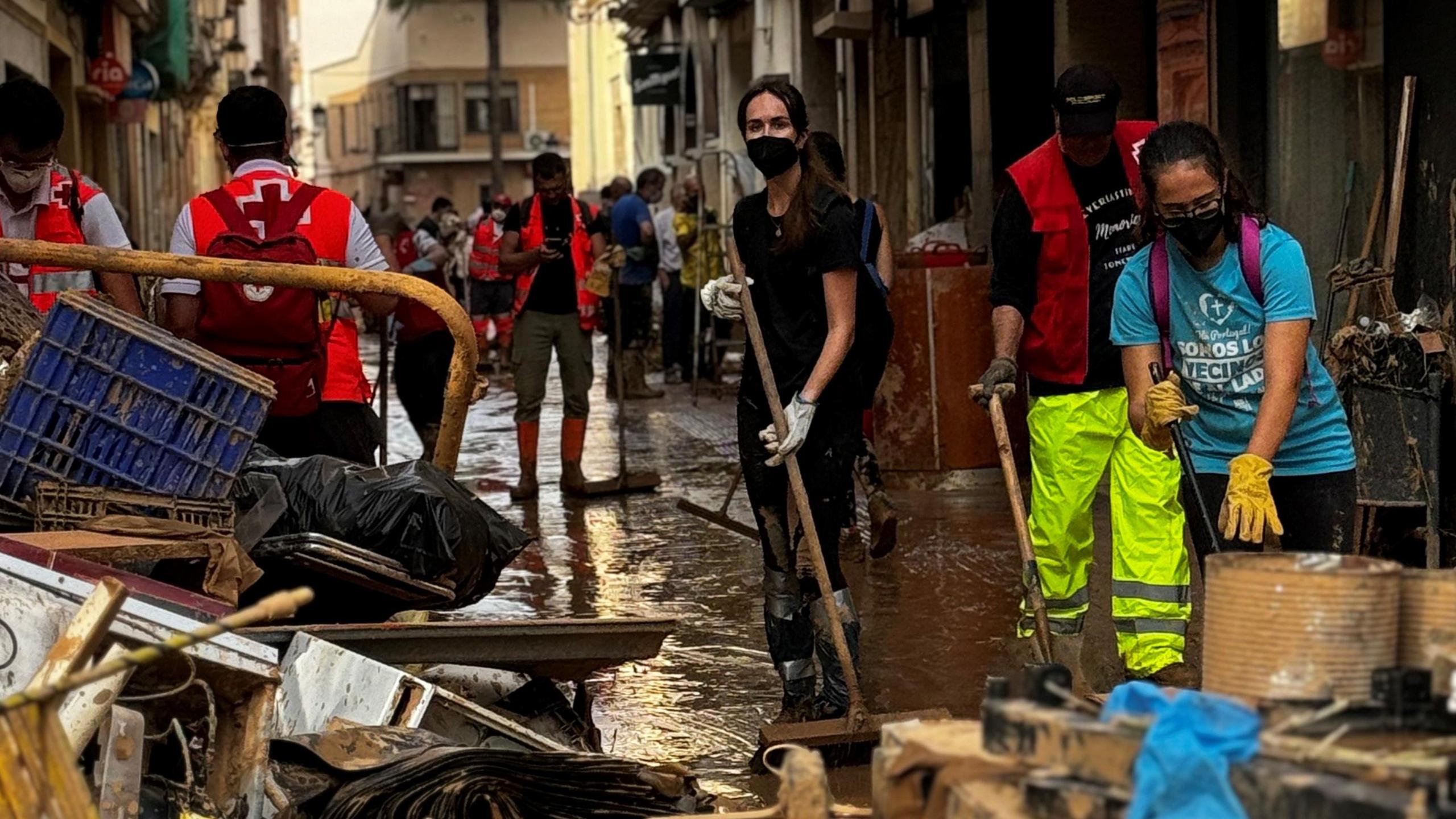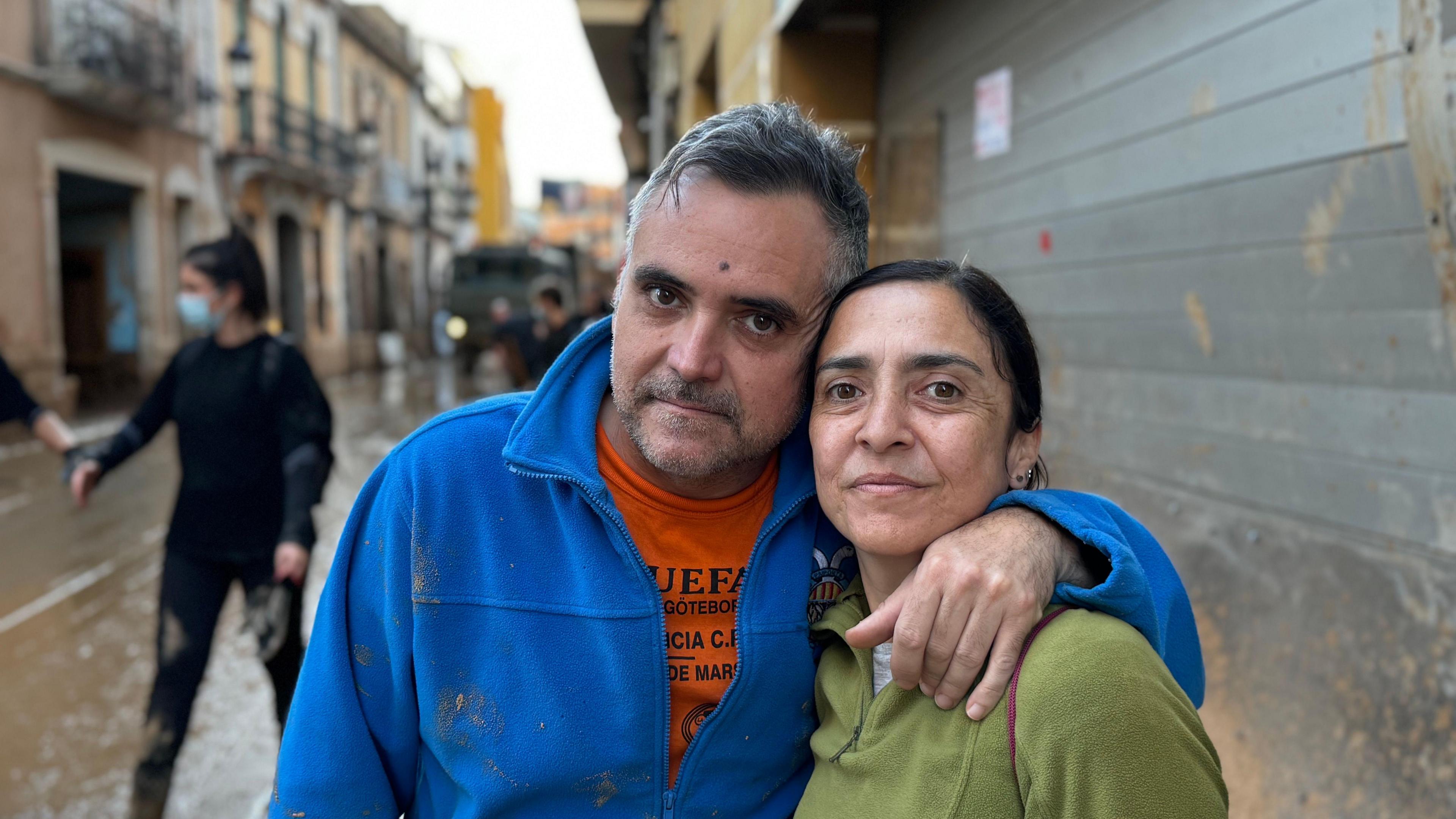Valencia floods: Spain clings to fragments of hope in time of disaster
Daniel Burguet was filmed rescuing trapped children during the Valencia floods
- Published
Floods and torrential rain returned to the Valencia region on Wednesday night, but this time they were ready for it, and the areas hit two weeks ago escaped further disaster.
More than 220 people died in this eastern coastal area at the end of October, and the town of Paiporta was hit hardest with the loss of 60 lives.
In the midst of despair the local population are understandably searching for beacons of hope, for example the remarkable story of what happened at the Whitby English language school.
As the whole road became engulfed in water, the college’s co-director, Daniel Burguet, repeatedly pounded against a door with a chair leg that he’d just picked up.
Filmed from a 3rd floor balcony across the street, Daniel is seen smashing constantly against the glass.
He is trapped with his 11-year-old daughter, Noa, and three younger children inside the school, unable to reach a higher floor.
Eventually, Danny breaks down the door of the next building along and, one by one, he pulls the children to safety.
“When I got through that door, I felt so relieved. Finally, we were safe,” Daniel tells me as he carries on repairs to the school.
In the quest for fragments of solace, it’s also perhaps understandable that when tales of bravery are found, they are celebrated unashamedly.
Local media have hailed Danny as the "Hero of Pairporta".

Daniel Burguet is now considered a local hero after a video of him smashing a door to take four children to safety went viral
“There are a lot of people who did the same thing that day, many ‘heroes’ like me, if you want to call us that,” he says.
“I feel good about it. I feel the love of people around here. I was the one who was filmed, but there were many other heroes.”
Rebuilding Spain’s shattered and traumatised communities will require an heroic effort that goes on for months.
The threat hasn’t gone away.
A fortnight after the worst floods to hit a single European country this century, Paiporta is still full of firefighters, police officers as well as the Red Cross and an army of daily volunteers.

Volunteers and emergency services are working to clean the streets, two weeks after Paiporta's deadly floods
But many residents feel the unofficial community-generated effort is not being matched by the authorities – either at the regional or national level.
“It was a tsunami,” declares Juan José Montane.
He shows me the video he took from his apartment as floating cars were hurled against the walls below him.
“It was only thanks to God that I survived,” he exclaims, furiously making the sign of the cross three times.
Divine intervention aside, it’s the lack of intervention from the Valencia and central government which is now infuriating him.
“This is shameful, we feel abandoned," says Juan José.
"For four days we didn’t see the army coming to help. We need more troops here.”
His sister, Lourdes, fears for how the town will re-build with so much lost and now a severe lack of infrastructure.
“We feel imprisoned here. There are no roads, it is horrible,” she explains.
"We lost everything in this town, everything.”

Brother and sister Juan Jose and Lourdes Montane say they feel abandoned by the authorities
Although the vast majority of houses are still standing, there is a lack of electricity, hot or drinking water in the streets that were the worst hit.
In Paiporta, piles of mangled cars have been created on roundabouts and at other places out of the way of traffic.
It’s estimated as many as 100,000 cars were destroyed during the floods.
Some abandoned vehicles that look pretty much intact, apart from a dented bonnet here or a flat tyre there, are not spared either.
Instead, they are grabbed by giant claw cranes that smash down through the windscreen and lift the vehicles away.
The loss of possessions has been immense in this region. The loss of life crushing.
And the trauma’s not over.
The mayor has urged people to stay inside, as the local population waits for the latest flood alert to subside.
Additional reporting by Bruno Boelpaep and Juan A. Dominguez
Get in touch
Are you in Spain? If it's safe to do so, please share your experiences.
'Life turned to dust': A family's grief after Spain floods
- Published9 November 2024
Spain's king and queen pelted with mud in flood-hit Valencia
- Published3 November 2024
Trapped in cars and garages: Why Valencia floods proved so deadly
- Published1 November 2024

Sign up for our Future Earth newsletter to get exclusive insight on the latest climate and environment news from the BBC's Climate Editor Justin Rowlatt, delivered to your inbox every week. Outside the UK? Sign up to our international newsletter here.